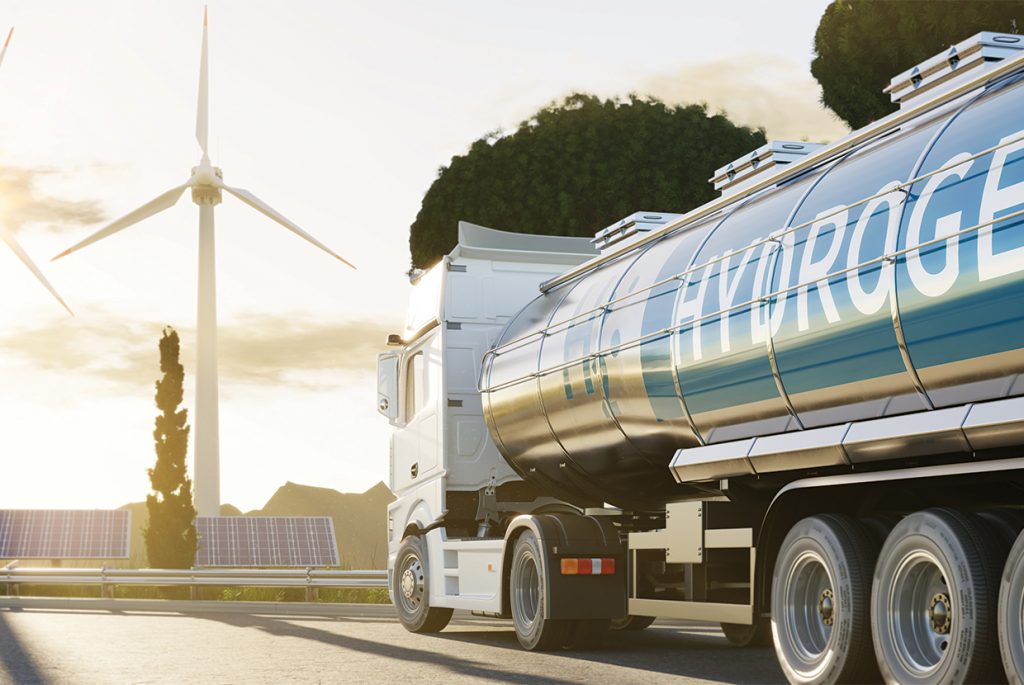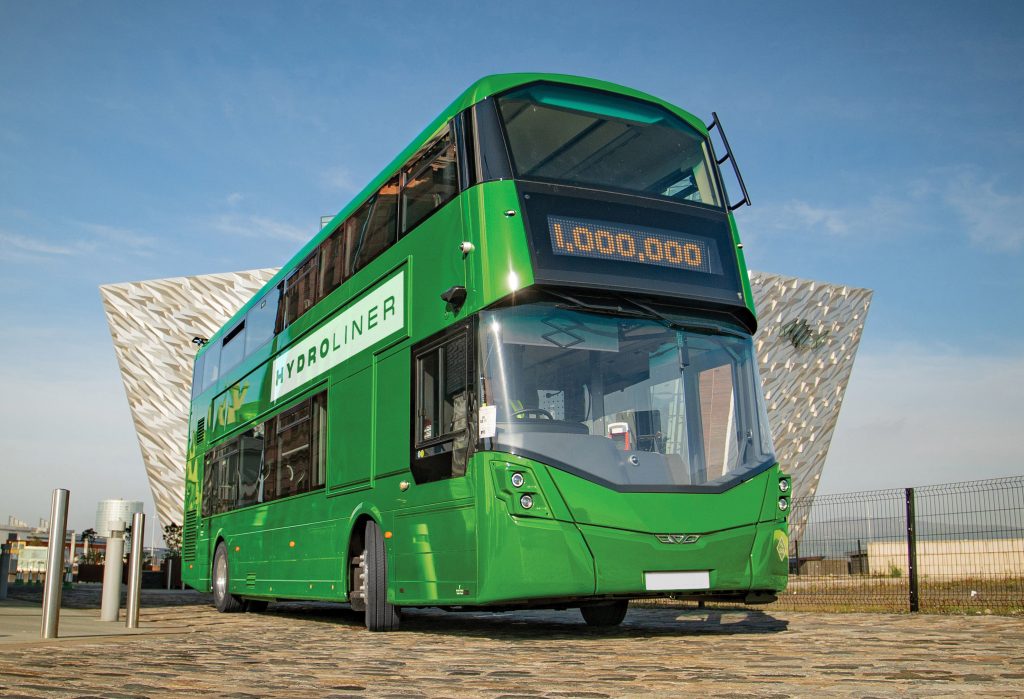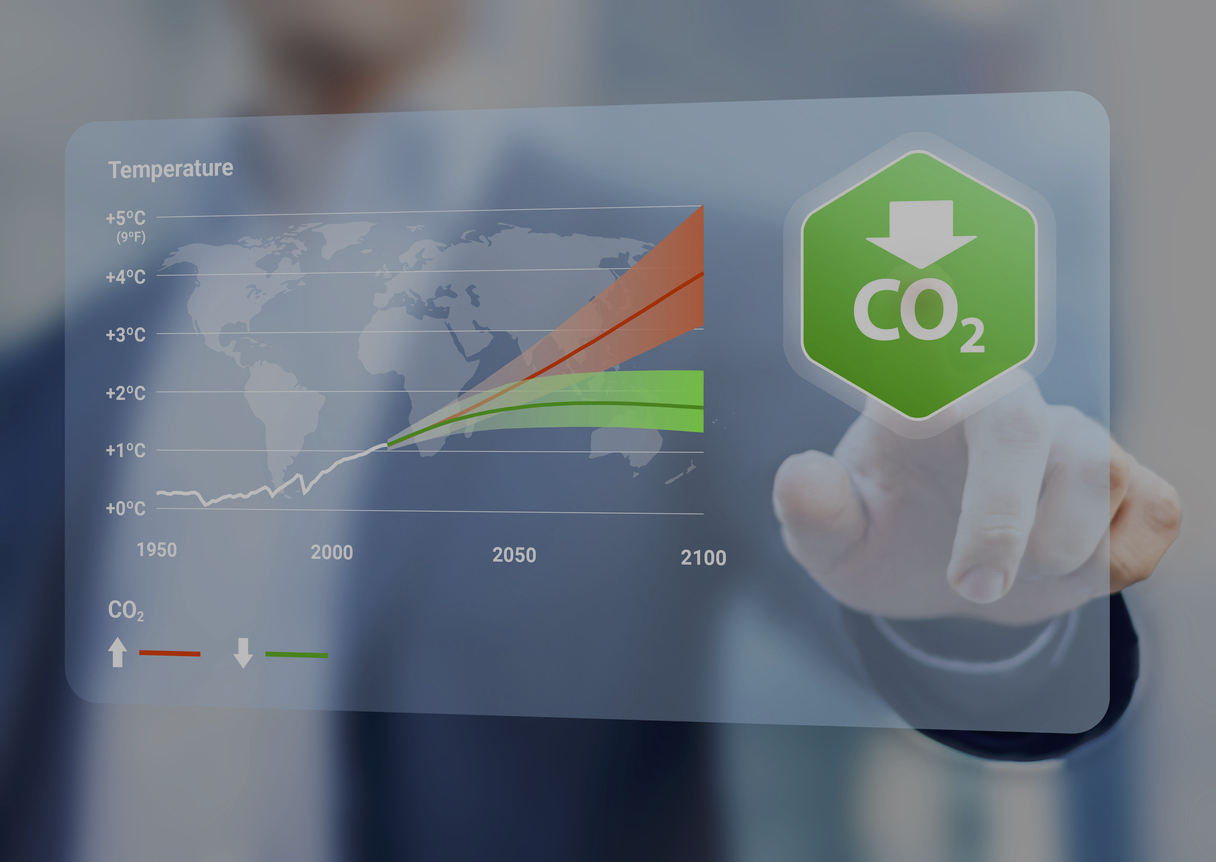We know that to address climate change we must implement decarbonisation of all sectors that emit carbon, within our economic systems worldwide.
According to Climate Watch from the World Resources Institute, Energy use accounts for 73.2% of harmful global greenhouse gas emissions, with Agriculture scoring a damaging 18.4%, and Industry and Waste contributing the remaining slices of the pollution pie between them (Industry 5.2% and Waste 3.2%).
More than 100 countries, and many more regions and corporations have pledged to achieve climate neutrality. And in order to attain net zero CO₂ emissions in the areas of industry, transportation, and energy that cannot be decarbonised through electrification, hydrogen is playing an ever more crucial role as a primary energy carrier.
The consumption of energy can broadly be categorised into three main sectors: transportation, industry, and heating. When transitioning from fossil fuels to renewable or low-carbon energy sources, direct electrification is generally given precedence when feasible. This guarantees the use of accessible power and eliminates the losses linked to conversion processes. Here at Ryze Hydrogen we’ve always maintained that meaningful decarbonisation requires both a lot of electrification and a lot of hydrogen.
However, certain applications simply cannot be directly electrified, necessitating the use of other low-carbon energy carriers: which is where hydrogen has stepped into the spotlight.

In the areas of industry, transportation, and energy that cannot be decarbonised through electrification, hydrogen is playing an ever more crucial role as a primary energy carrier.
The Hydrogen industry is gaining rapid momentum because, in response to the need for more sustainable economic growth, countries worldwide are striving to transition to clean energy sources.
The 2015 Paris Agreement on Climate Change has established a target of limiting global warming to under 2°C, preferably under 1.5°C, in comparison to preindustrial levels. As a result, carbon emissions must decrease by 45% from their current levels by 2030, followed by achieving net-zero emissions by 2050, which is the pledge made by nations to decarbonise the planet.
The surge in demand for low-carbon hydrogen is therefore resulting in the emergence of investment prospects at different stages of the value chain, including feedstock development, hydrogen generation, transportation, and storage. Capital requirements naturally differ at each step, and economic policies significantly influence decisions. But what is certain is that nations know they must invest hundreds of billions in the hydrogen industry immediately, in order to achieve their net-zero objectives between 2025 and 2030.
As a catalyst for achieving net zero, clean hydrogen energy has the ever-increasing focus of energy experts and global policy-makers. Significant progress in enabling technologies, combined with government subsidies and industrial policies supporting research and development, such as the European Commission’s approval of over €5 billion and the $9.5 billion allocated by the US Inflation Reduction Act, is largely responsible for this.

Hydrogen is being used to power a wide range of heavy transport, including the world’s first double-deck hydrogen buses manufactured by UK company Wrightbus who already have zero-carbon hydrogen buses in operation in cities across the UK and beyond. Pictured: A Wrightbus hydrogen double deck bus having clocked up their first million miles of zero-carbon journeys back in 2022. The hydrogen buses take the same time to refuel as a diesel bus and then cover the same distance, the crucial difference being that nothing comes out of the hydrogen bus exhaust except water vapour.
Clean hydrogen, which produces zero carbon emissions, can be generated using electricity from renewable energy sources such as solar, wind, geothermal, and hydropower, to extract hydrogen from water through electrolysis. While not a primary energy source like fossil fuels, hydrogen is seen more as an energy carrier, similar to electricity itself.
Hydrogen is not only being used to power heavy transportation, such as zero-carbon buses and diggers, but is also gaining traction in the production of steel and cement, as a rocket engine fuel, and for refining ammonia to create fertilisers. It is a cost-effective alternative for these specific industrial and manufacturing procedures.
We need to accelerate our transition of energy consumption away from fossil fuels and towards hydrogen to achieve our net-zero emission targets. The shift from traditional combustion-based energy systems to hydrogen-based energy carriers, which emit zero greenhouse gases are underway, but we need to do more, and we need to do it quickly.
Many nations are giving greater priority to their hydrogen strategies, as global demand for verifiably low-carbon hydrogen continues to increase apace. This presents an opportunity for the UK to take the lead in the production and advancement of clean hydrogen.
To guarantee substantial hydrogen development over the next ten years, the government must provide more clarity in its hydrogen strategy, and outline its plans to facilitate the large-scale development of hydrogen projects in the UK.
To learn more about Ryze Hydrogen, click here.






